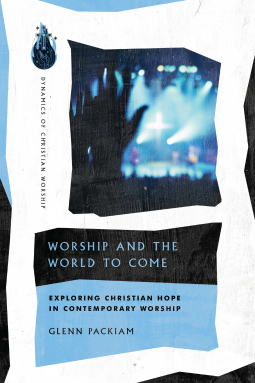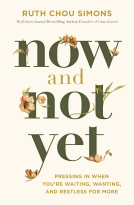
Worship and the World to Come
Exploring Christian Hope in Contemporary Worship
by Glenn Packiam
This title was previously available on NetGalley and is now archived.
Send NetGalley books directly to your Kindle or Kindle app
1
To read on a Kindle or Kindle app, please add kindle@netgalley.com as an approved email address to receive files in your Amazon account. Click here for step-by-step instructions.
2
Also find your Kindle email address within your Amazon account, and enter it here.
Pub Date Jul 28 2020 | Archive Date Aug 27 2020
InterVarsity Press | IVP Academic
Talking about this book? Use #WorshipandtheWorldtoCome #NetGalley. More hashtag tips!
Description
Christians sing because we are people of hope.
Yet our hope is unlike other kinds of hope. We are not optimists; nor are we escapists. Christian hope is uniquely shaped by the resurrection of Jesus Christ from the dead and by the promise of our own future resurrection.
How is that hope both expressed and experienced in contemporary worship? In this volume in the Dynamics of Christian Worship series, pastor, theologian, and songwriter Glenn Packiam explores what Christians sing about when they sing about hope and what kind of hope they experience when they worship together. Through his analysis and reflection, we find that Christian worship is crucial to both the proclamation and the formation of Christian hope.
The Dynamics of Christian Worship series draws from a wide range of worshiping contexts and denominational backgrounds to unpack the many dynamics of Christian worship—including prayer, reading the Bible, preaching, baptism, the Lord’s Supper, music, visual art, architecture, and more—to deepen both the theology and practice of Christian worship for the life of the church.
Advance Praise
"Worship and the World to Come is a timely and highly significant volume. Glenn Packiam shows us how there is a pressing need for careful, theologically sensitive studies that review the fast-growing contemporary worship scene."
-Pete Ward, professor at St John's College/Department of Theology and Religion, Durham University, United Kingdom
"In this book Glenn Packiam offers a deep and insightful perspective on Christian hope as it is lived out within real Christian communities. While there has been much useful conceptual work done on the theology of hope from the perspective of systematic theology, relatively little is known about what it means when it is lived out within worshiping communities. For Packiam, worship and hope are deeply tied together. Worship is 'the place where we rehearse our hope,' a place where hope becomes embedded within us. It matters how we worship, and it matters that we look carefully at the ways in which we worship if we are to hope faithfully. By gathering rich and deep empirical data and using it as a locus for theological reflection, Packiam not only helps us to understand hope more fully, he also moves our understanding on in important ways. This book is an important contribution to the emerging field of theological ethnography and a worthy contribution to the church and academy."
-John Swinton, professor of practical theology and pastoral care, King's College, University of Aberdeen
"Glenn Packiam in this book Worship and the World to Come has embarked on a journey less traveled by a practitioner-scholar in the contemporary praise and worship (CPW) field. Often, CPW has been accused of valuing emotional experiences at the expense of robust theological thought. Through this work, Packiam has done much to redress this notion in the investigation of Christian hope as understood in normative theological thoughts and parsing it within the frame of CPW worship practices. It is an illuminating work that reflects his keen scholarship while staying true to his spirituality. This book showcases the maturation of CPW practice—or, if we dare, CPW worship tradition—with its practice undergirded by theological thought."
-Swee Hong Lim, Deer Park associate professor of sacred music and director of the master of sacred music program, Emmanuel College of Victoria University in the University of Toronto
"The New Testament is quite clear: Christians are to lean into the future with hope. 'Look forward,' the Scriptures say time and again. But what is the actual tilt of that leaning found in Christians today? In his book Glenn Packiam provides a fascinating answer to this question with special reference to contemporary worship and worshipers. Seeing how he describes how Christians today hope in the future, I was at times encouraged by what I read and at others deeply alarmed. Scholars, pastors, and rank-and-file worshipers alike will benefit from Packiam's study. It has immediate pastoral impact for assessing and promoting a biblical, hopeful leaning into God's future in Christ."
-Lester Ruth, research professor of Christian worship at Duke Divinity School
"There is now a growing number of theologically trained worship thinkers and practitioners interested in moving past the old 'worship wars' of style toward a deeper, more thoughtful type of worship training (or catechism). This book promotes training to produce the fruit the Bible encourages us to grow—fruit that fills each of us as Christians, that is, as Jesus-followers, with an irresistible, irrepressible hope for what is to come. Dr. Glenn Packiam is committed to what is sometimes now out of vogue, the notion of discipleship. His evident dedication to the formation of the people of God makes this book worth reading. In fact, this is what many of us have long been hoping for—a book that simplifies complex theological concepts into very useful frames for worship leaders and worshipers who may not have undertaken any formal study."
-Tanya Riches, senior lecturer and MTh coordinator at Hillsong College, Australia
"If it is fundamentally impossible to be a Christian without hope, then all Christians at worship are in the business of singing themselves into a new story that beckons from the future—the good future of God in Christ that the Spirit makes palpable here and now in our public worship. That's the basic point that Glenn Packiam makes in this theologically learned, liturgically intelligent, and pastorally sensitive book—a book that deserves careful reading by scholars and pastors, along with every worship leader charged with the holy task of leading the people of God in song. Our calling as church leaders, as Packiam rightly sees it, is not only to announce our new future in Christ; our task is to enact and embody that new future in our songs of praise and proclamation. How and what we sing, then, become a singularly formative means by which the Spirit transforms our lives to be a sign and foretaste of God's new creation. That's the charge! That's the hope!"
-W. David O. Taylor, associate professor of theology and culture, Fuller Theological Seminary
"Worship songs have a profound influence on the contemporary church both enriching our understanding of the gospel and sometimes corrupting it. In this unique and outstanding book Glenn Packiam, composer, worship leader, and theologian, aids our comprehension of how worship should help us envisage and live in the world that Jesus has already inaugurated."
-David Wilkinson, principal of St Johns College and professor of theology and religion at Durham University
"Glenn Packiam has taken one of the most elusive ideas in Christian tradition—hope—set it alongside one of the most contested—eschatology—and grappled with how both inform the public worship life of American evangelicals. Set within a rich, multifaceted study of Christian worship in the contemporary United States, the result is a compelling exercise in practical theology that never shies away from uncomfortable truths. Packiam distills a wide range of sources, ideas, and arguments into a discussion of evangelical worship that is both deeply insightful and highly accessible. This is a piece of practical theology that is theologically serious and practically engaged, a consideration of hope and eschatology that is careful in its marshaling of theological scholarship and attentive to the complexities that reflect the life of evangelical churches in the twenty-first century. Scholars of evangelicalism, church leaders, and Christian worship professionals alike will find much wisdom in this timely volume."
-Mathew Guest, professor of the sociology of religion at Durham University
"Glenn Packiam is a translator, enabling theology to speak to congregational worship ministry and enabling that ministry to communicate to theology. His qualifications? His own biography as both a worship leader and theologian, his sharply observed fieldwork, and his careful sifting of important theological and musical texts. Incisive, measured, and genuinely charitable, this book will provide the help theologians and worship leaders need to glean what they need from each other for their shared work in the kingdom of God."
-Wesley Hill, associate professor of New Testament at Trinity School for Ministry, Ambridge, PA, and author of Washed and Waiting
"In Worship and the World to Come, Glenn Packiam delivers an accessible, engaging integration of the eschatological work of leading biblical scholars and theologians N. T. Wright and Jürgen Moltmann within the key and context of the practices of contemporary worship. The result is an inspiring theological vision for worship that situates our present life together as the church within the transformational redemptive purposes of God for all of creation. Packiam's pastoral and theological work in this book will nourish worshipers for the journey of faith by reorienting our gaze toward the goal of salvation—the new creation—as it breaks into the present by the power of the Spirit."
-John Frederick, lecturer in New Testament at Trinity College in Queensland, Australia, and author of Worship in the Way of the Cross
Available Editions
| EDITION | Other Format |
| ISBN | 9780830849314 |
| PRICE | $36.99 (USD) |
| PAGES | 240 |
Average rating from 4 members
Featured Reviews
 David S, Reviewer
David S, Reviewer
I read a pre-launch version of this book, which is sceduled be released in July 2020. This is directed at pastors and song writers and is an intermediate book. It addresses research, the methodolgy (qualitative and quantitative), and outcomes leading to suggestions for worship. The author looked a songs that fell within CCLI's top 25 and two church groups: 1) Reformed, 2) Charismatic.
The book is directed at pastors and song writers and is an intermediate level book. It addresses research, the methodolgy (qualitative and quantitative), and outcomes leading to suggestions for worship. The author looked at songs that fell within CCLI's top 25 and two church groups: 1) Reformed, 2) Charismatic.
More analysis of the hymns we sing is needed: 1) individual or community oriented, 2) verbs active or passive, 3) content, is it thin or thick theology, and 4) tense, past, present, or future 5) false beliefs in hymns. More hymns, churches, how the songs we sing affect the outcome of our behavior should be included in any future studies
My reasoning is that our habits of thinking and being are shaped by repitition, and that repitition becomes habit and music we sing throughout the service can reinforce bad theology. Songs that use I or me can reinforce individualism, passive verbs can reinforce inaction, thin theology can stifle growth, and therapuetic themes can keep us from seeing the big picture of eschatology and/or keep us focused on ourselves.
We need to be cognizant of the fact that our situations and surroundings may affect the way we sing about hope. Next time you are in Church consider the songs of hope we sing. Packiam notes that If the majority of hymns are in the present tense it is important to remember that "focusing on the present tense is a luxury of the privileged."
He further notes that these songs of privilege "stand in contrast with the slave spirituals. "“The spiritual,” James Cone argues, “is the spirit of the people struggling to be free; it is their religion, their source of strength in a time of trouble. And if one does not know what trouble is, then the spiritual cannot be understood.” The rhetoric of the songs and the sermons of black preachers, taken together, makes clear that the grounds and object of hope were eschatological. By eschatology, Cone means not simply the future return of Christ, but the past resurrection of Christ, since it is the resurrection that shapes our hope at his return. Thus Cone writes, “The resurrection was an eschatological event which permeated both the present and future history of black slaves.” In fact, it was because “the black slave was confident that God’s eschatological liberation would be fully revealed in Jesus’s Second Coming” that “he could sing songs of joy and happiness while living in bondage.”"
"The spirituals are full of references to heaven, a place where “the oppressed would ‘lay down dat heavy load’”; “a place where slaves would put on their robes, take up their harps, and put on their shoes and wings.” It was a “home indeed, where slaves would sit down by Jesus, eat at the welcome table, sing and shout, because there would be nobody there to turn them out”; it was “God’s eschatological promise,” where there would be “no more sadness, no more sorrow, and no more hunger.” But heaven was not simply a place of future hope; it was also a metaphor that inspired action in the present. Heaven, in spirituals, “served functionally to liberate the black mind from the existing values of white society, enabling black slaves to think their own thoughts and do their own things.”"
This was a very interesting read and though I am not presently a pastor or song writer found it helpful. I surely recommend this book for anyone reading at the intermediate leven and has an interest in research data and analysis













